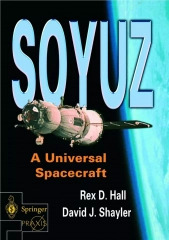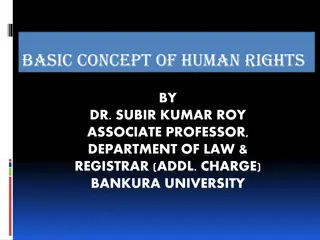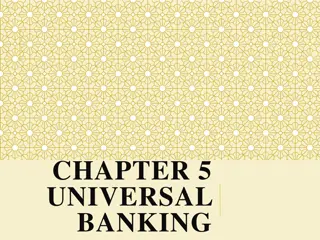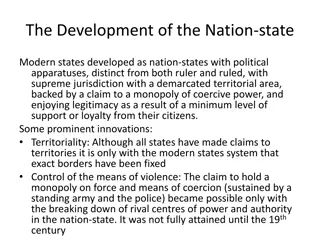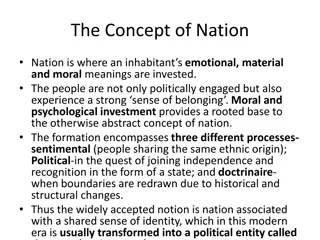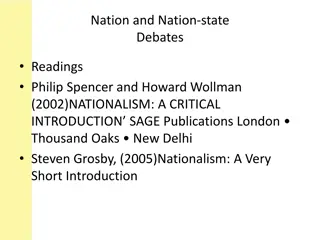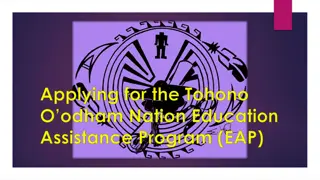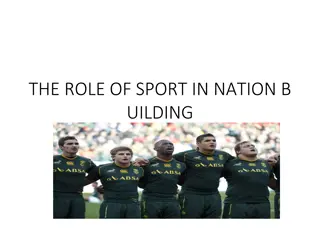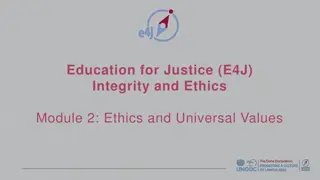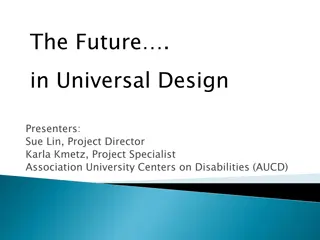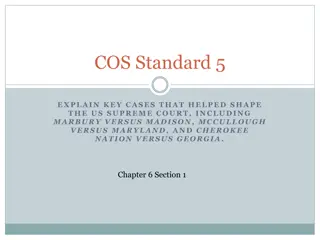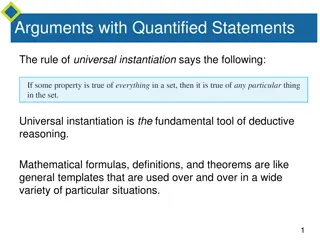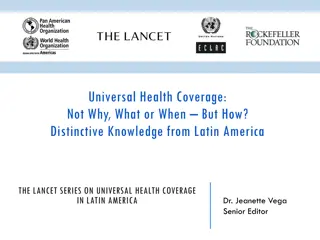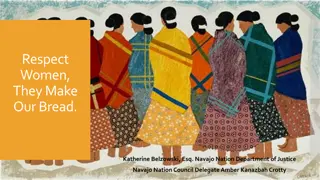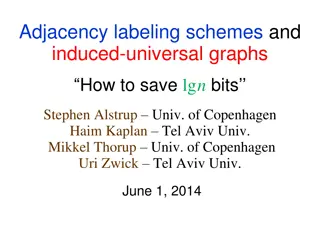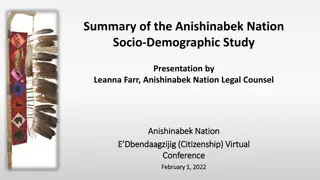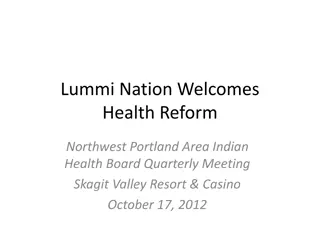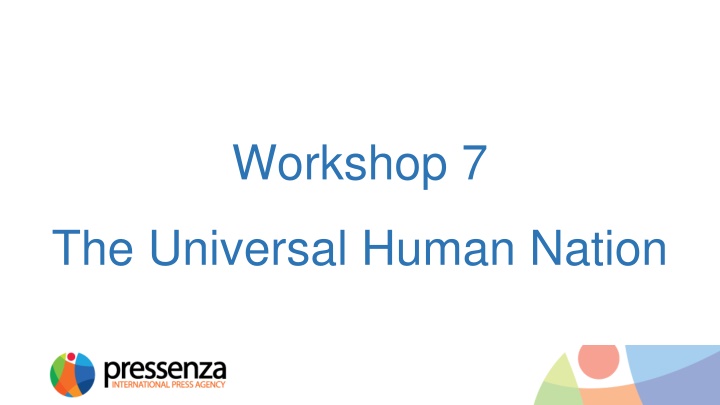
Challenges Facing the Universal Human Nation: Wealth Inequality, Military Spending, Nuclear Threats, and Forced Migration
Explore the pressing issues confronting the Universal Human Nation, including the concentration of wealth, global military spending, nuclear holocaust risks, and forced migration due to persecution and conflict. These challenges highlight the need for global cooperation and humanitarian efforts to address the complexities of our world today.
Download Presentation

Please find below an Image/Link to download the presentation.
The content on the website is provided AS IS for your information and personal use only. It may not be sold, licensed, or shared on other websites without obtaining consent from the author. If you encounter any issues during the download, it is possible that the publisher has removed the file from their server.
You are allowed to download the files provided on this website for personal or commercial use, subject to the condition that they are used lawfully. All files are the property of their respective owners.
The content on the website is provided AS IS for your information and personal use only. It may not be sold, licensed, or shared on other websites without obtaining consent from the author.
E N D
Presentation Transcript
Workshop 7 The Universal Human Nation
Universal Human Nation Humanists are internationalists, aspiring to a universal human nation. While understanding the world they live in as a single whole, humanists act in their immediate environments. Humanists seek not a uniform world, but a world of multiplicity: diverse in ethnicity, languages and customs; diverse in local and regional autonomy; diverse in ideas and aspirations; diverse in beliefs, whether atheist or religious; diverse in occupations and in creativity. (Silo, 1994)
11 symptoms of a violent world
Concentration of wealth Wealth is increasingly concentrated in fewer and fewer hands. A report by Oxfam from January 2020 estimates that the world s 2153 billionaires have more wealth than the 4.6 billion poorest people. This concentration of wealth creates the conditions for death, disease, ignorance and violence in all its forms to flourish. It condemns entire countries to beg for help from the rich and it is unworthy of a planet that is supposed to be at the height of its intellectual, scientific and technological development. (Oxfam, 2020)
Global military spending Global military spending, after a minor decline at the beginning of the last decade, is now on the increase once more, with the world spending US$1.9 trillion on their armed forces. This is money that now, more than ever, needs to be channelled towards human security. (SIPRI, 2019)
Nuclear holocaust Human civilization is under threat from nuclear oblivion as evidenced by the International Physicians for the Prevention of Nuclear War who have concluded that a limited nuclear war, in which only 100 of the world s combined arsenal of 14,000 weapons were to be exploded on urban centres, could kill up to 2 billion people as a result of the explosions themselves, of radiation sickness and of starvation due to the dramatic cooling resulting from the dust and soot ejected into the upper atmosphere and the subsequent reduction in agricultural output. (IPPNW, 2013)
Forced migration Forced migration due to persecution, conflict, generalized violence and human rights violations, stood at 68.5 million people in 2017. Thousands of people are dying in the Mediterranean, in the Sahara Desert, in Central America, in Asia and elsewhere in their attempt to reach better conditions for life and security. (International Organization for Migration, 2018)
Human rights The aspirations expressed in the Universal Declaration of Human Rights are far from being fully enjoyed by the world s population. (Human Rights Watch, 2020)
Women The billions of women, representing more than 50% of the world population, are struggling everywhere to free themselves from the violence they are subjected to in all walks of life as a result of the dominant patriarchal system. It is essential to put in place the necessary security and education measures needed to eradicate gender violence which accounts for the deaths of thousands of women around the world every day, as well as ensuring equal pay, professional and personal opportunities, in addition to the right to healthcare and sexual and reproductive education. (UN Women, 2018)
LGBTQ+ people Those who identify as LGBTI+ have the same rights as anyone else, but today they suffer violence all over the world. The last time the Office of the High Commissioner for Human Rights at the United Nations issued a report in 2015, it called on States to act urgently to end violence and discrimination against lesbian, gay, bisexual, transgender and intersex (LGBTI) adults, adolescents and children, and the situation hasn t improved much in the years since. (UNHCR, 2015)
Children In regards to children, quoting just one indicator in the latest report by UNICEF, Globally, at least 1 in 3 children under 5 is not growing well due to malnutrition. (UNICEF, 2019)
Indigenous peoples Indigenous people everywhere, despite the recognition of their rights gained in international law, are discriminated against, displaced, persecuted and murdered in order to ensure the seizing and exploitation of their territories. This compromises these people s lives and deprives society as a whole of their contributions to culture and their defence of the balanced relationship with the environment which could be key to guaranteeing our survival as a species. (ILO, 1989)
Biodiversity The planet is on the brink of environmental disaster, according to the Intergovernmental Science-Policy Platform on Biodiversity and Ecosystem Services, in areas such as decreasing bio-diversity, food production, ocean pollution, reductions in forested areas and increasing urbanisation. There are 1 million species threatened with extinction. (IPBES, 2019)
Climate change We are set to pass the 1.5 C threshold by 2040 (IPCC, 2022)
References UN Human Rights Council (2015) Ending violence and discrimination against lesbian, gay, bisexual, transgender and intersex people https://bit.ly/3B19DaL UNICEF (2019) The State of the World s Children 2019. Children, Food and Nutrition: Growing well in a changing world https://uni.cf/3cvmdF9 International Labour Organization (1989) Indigenous and Tribal People s Convention, https://bit.ly/2AWFCJp Intergovernmental Science-Policy Platform on Biodiversity and Ecosystem Services (2019) https://bit.ly/2Jg5XY1 International Panel on Climate Change (2022) IPCC climate report 2022 summary: The key findings https://bit.ly/3v28Geq Oxfam (2020) Time to Care, https://bit.ly/3Pu3loM SIPRI (2020) Global military expenditure sees largest annual increase in a decade says SIPRI reaching $1917 billion in 2019, https://bit.ly/3S13GB1 IPPNW (2013) https://bit.ly/3IRsJSC International Organization for Migration (2018) International https://bit.ly/2RJpr9d Human Rights Watch (2020) World Report 2020 https://bit.ly/3yX0P3e UN Women (2018) Las mujeres est n por debajo de los hombres en todos los indicadores de desarrollo sostenible https://bit.ly/2F3b0qx

